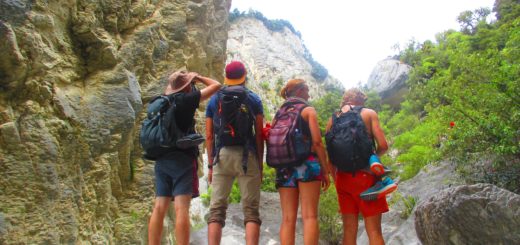How to really travel on a budget?
First and foremost, like YOU, I always travel on a budget, at least for now and I do know how much work and planning is behind a well thought out trip. Here is how I make my budget always work out when travelling.

Alberta, Canada
1. That latest phone you’re about to get, those trips to the mall that always end up on a couple of new shirts, eating out more than in, that all has to stop, right away. Trust me, I also used to think that that saying ‘every penny counts’ was nothing but crap coming from people who had already a lot of money to do things, little did I know that saying is true, and worth it.

2. Search, and then search again, and then a little more for the best deals. I’ve always been sort of a cheapskate (I’ve gotten better) to the point that if I could find a better deal somewhere else that would save me a few bucks, that would make my day and I would already start thinking in the back of my head where I could use those few bucks I had just saved. But my point is, when you think it’s cheap, think twice it can get cheaper. My to-go websites when checking for flights are Skyscanner and Google Flights. On Google Flights you can even see trends in price surge and avoid dates that would just make you spend more when that could be avoided. Another tip is book multiple bookings instead of one only booking with all the flights until your destination, eg. if you’re going from New York to Warsaw it might be cheaper if you book the cheapest flight from New York to any European city and from that city another booking to Warsaw, doing this way could save you a few bucks, even if you have to change airports within the city. These screenshots below show how i could save R$ 526 (~$166) on this flight from NY to Warsaw.

One single booking with all the flights for R$2074 (~$658)

A flight from NY to London for R$1471 (~$466)

Another flight from London to Warsaw for only R$ 77 (~25)
3. Pay attention to your budget and stick to it. Read as much as you can about the destination you’re going to get a feeling of prices and always make sure to have extra in case of an emergency, eg. if you have $900 for your 2-week trip to Germany just do the math, 900/14 days gives you about $65/day, but then again spending exactly $65/day would be too risky so I always try to use 70-80% of my daily budget, in this situation I would have about $50/day to spend.
4. Couchsurfing. For those who haven’t heard about Couchsurfing yet i’ll try to explain as briefly as possible. It’s a website where you can connect with other travellers who are willing to give you a place to sleep for free at their home cities. Obviously saving with accomodation is big, but couchsurfing shouldn’t be all about that, it’s about being fortunate enough to connect with a cool local (trust me, couchsurfing members are the coolest people on this planet) who can show around, emerge you into their culture and be really flattered for having had you as a surfer. Simply put, if you haven’t tried couchsurfing yet, do it! Like myself, chances are you’ll be wondering why you haven’t done it sooner. As nice as couchsurfing is not always you will find a host to stay at so just do the good old hostel. Great for meeting people, cheap and they’re all around.
5. Besides all of those 4 things I just mentioned there’s the most essential: food (at least for me being a foodie).
Here’s the skinny and this is quite personal, I think food is so essential and is such a big part of a culture that I don’t really budget so much on it. Of course i won’t be eating at 5-star restaurants but I won’t starve myself to death if I’m at a specific place where food is supposed to be more expensive. What I try and do when looking for good eats is walk away from where the tourists are. When in Indonesia, the food being sold 5 blocks away from the beach was about 70% cheaper and I’m sure tasted just as good. So once again, avoid the obvious and try going out of the beaten path.
I didn’t use to travel much but once I started, I just can’t stop travelling. On Can I Pack? I try to share how I make my travels work out because travelling shouldn’t be hard.




